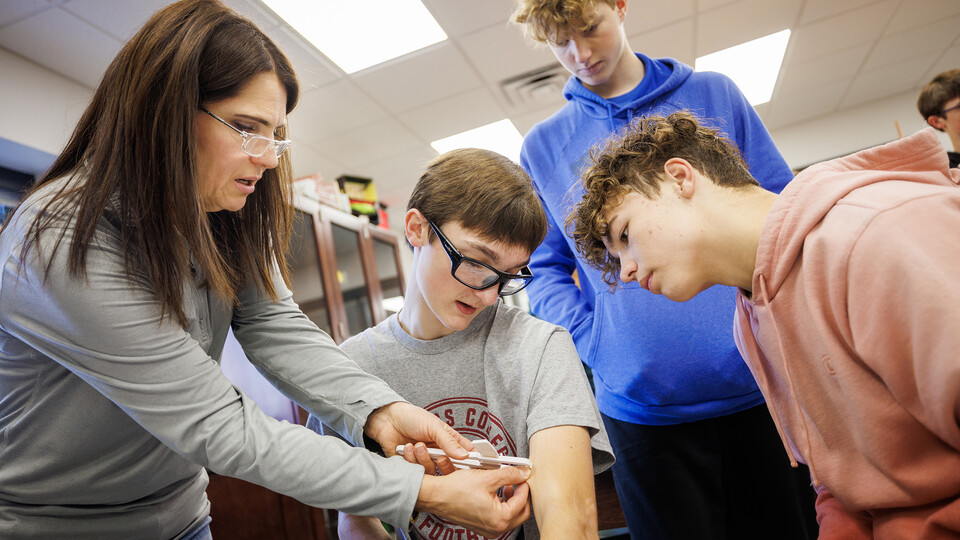
by Deann Gayman | University Communication and Marketing
Against the backdrop of northern Kenya, two Nebraska high school educators dove into anthropological and ecological research while developing science curricula they are now piloting in their classrooms.
With funding from the National Science Foundation’s Research Experience for Teachers program, Charley Bittle, biology teacher and chair of the science department at Lincoln Southwest High School, and Chelle Gillan, biology and health science teacher at Central City High School, attended a six-week research session at Koobi Fora Field School in June and July.
They were under the advisement of Matthew Douglass, director of the Master of Applied Science program and associate professor of practice in the College of Agricultural Sciences and Natural Resources at the University of Nebraska–Lincoln. The field school is an international collaboration between George Washington University and the National Museums of Kenya, with affiliated researchers from the United States, Africa and Europe.
As full-time researchers at the field school, Bittle and Gillan accompanied scientists on the ground, collecting data, including vegetation and water samples, and worked with the local Daasanach pastoralist people to gather information, including health measures, for research exploring how pastoralists have adapted in the Turkana Basin over 4,000 years. Bittle kept a blog of the experience.
“It was very exciting,” Bittle said. “We participated in field research and the excitement of it all was palpable; you’re collecting data, using new techniques along with ones you haven’t done for a long time. When you have the science background, as well as an educator for 20 years, it makes it really fun, especially to be around others who were so curious, knowledgeable and passionate about this work.
“And then, you’re always thinking about how to bring this experience back to the classroom to get the students excited, too.”
Read more:
https://news.unl.edu/newsrooms/today/article/nebraska-educators-get-research-curriculum-opportunity-through-nsf/